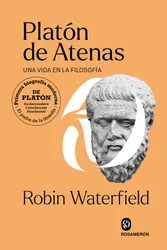Alexander the Great changed the world that he knew--but how he did it, and how much of his story is truth and
how much is invented, is hard to tell. One of our most important sources for his achievements and personality
is Plutarch's Life of Alexander, and this is the first detailed commentary on it for over fifty years, along with a
thorough introduction and translation. It is a sister volume to the author's 2011 edition (also in the Clarendon
Ancient History Series) of Plutarch's Caesar, the Life paired with Alexander in Plutarch's series of Parallel Lives.
The life of Alexander the Great was clouded in legend from his own lifetime, not least because Alexander
himself curated his image with such care. Disentangling the truth is not an easy task, especially because our
surviving narratives, including Plutarch's, all date from centuries later under the Roman empire. Plutarch's
Life of Alexander is especially important for Alexander's early years, but for his later achievements too it often
supplements or corrects our other accounts; it is also a considerable literary achievement, as Plutarch produces
a memorable picture of a brilliant soldier, full of spirit and ambition, gradually coarsened by his own successes
and his suspicions of his friends until his final months at Babylon in a court full of superstition, terror, and
dread. Plutarch had to navigate his way through an unusually vast stock of material to produce this portrait.
This commentary discusses those literary techniques in detail as well as providing a thorough investigation of
the historical issues that Plutarch's narrative raises.












